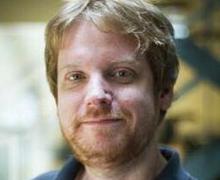Interview with Juan Linietsky
Making the next blockbuster game with FOSS tools. Using Free Software tools to achieve high quality game visuals.

Juan Linietsky will give a talk about Making the next blockbuster game with FOSS tools. Using Free Software tools to achieve high quality game visuals. at FOSDEM 2019.
Q: Could you briefly introduce yourself?
I have been an entrepreneur and open source enthusiast for more than two decades, specializing in game development technology. In the past, I worked as consultant on PC, mobile and console games for companies like Sony, Square Enix and Koch Media, as well as the biggest video game companies in South America. I am also the main author and development lead of Godot Engine, a popular free and open source game engine which has been growing a lot the past years.
Q: What will your talk be about, exactly? Why this topic?
The game development world is about 25% of all the software industry in revenue and resources yet, unlike enterprise (where open source software is in the spotlight) most game development is done with proprietary tools and game engines. This puts us in an uphill battle from the start.
Approaching industry events to talk more about our work is difficult, because we don’t fit very well either in the game industry or the open source world. This results in our proposals more often being rejected than accepted. Having had this talk accepted is a first for us, and we are immensely grateful to you guys.
The idea of this talk is to break the ice on these topics and show that there is FOSS that is perfectly capable of creating the highest quality possible for game development, from 3D modelling to engine development. This will be accomplished by showing, step by step, how content goes from prototype stage to final product.
Q: What do you hope to accomplish by giving this talk? What do you expect?
I hope that more developers will become aware that FOSS technology can be used to create gaming content. Unlike enterprise or scientific software, most game developers are only aware of proprietary tools such as Unity or Unreal Engine. Godot is not only a perfectly capable replacement (new users who come from the proprietary world often find it surprising how polished and stable it is), but also brings many fresh ideas that make game development more enjoyable. All this will be shown during the talk too.
Q: What’s the history of the Godot Engine? What was your motivation to start it? Has it become what you planned it to be?
As I mentioned before, I worked most of my life as a game development consultant. Together with Ariel Manzur, we created Godot as a tool to work with our clients, by providing them technology besides our experience. At some point, as we never intended to profit from the engine itself, we decided to put it on GitHub so we could develop it in the open together with whoever might be interested.
In only a few years (and to my surprise) the user and contributor community grew very large. This allowed me to stop working as a consultant and dedicate full time to Godot development, thanks to generous donations.
Q: What were the biggest breakthroughs that have made it possible now to create games with high-quality visuals using FOSS tools with relatively little effort?
On the one hand, technology itself evolves fast and the rendering world (which, fortunately, has always been very open in sharing research) keeps coming up with amazing ideas to improve real-time graphics.
Godot did not “invent” anything new, but it implements most modern rendering techniques in unique ways that are more accessible and less error-prone to users. While proprietary game engines require you to focus on learning shaders, or tweaking a lot of parameters, Godot gives you plenty of tools out of the box to achieve great graphic quality with the least effort possible.
Q: What does Godot’s community look like? How can interested people contribute? In which domains could you use some help?
The Godot user community is rather large, spread across Facebook, Reddit, Twitter and Discord. It’s in the tens of thousands of users for each social network. We do our best to ensure that community members are kind and helpful to each other, so learning Godot and asking the community for help is generally an enjoyable experience.
The developer community is mostly on GitHub and IRC (freenode). We are usually very active daily, discussing implementations, fixing issues, etc.
The best way to get involved as a contributor is to go to our GitHub page and have a look at issues with the tags “junior job” or “hero wanted”. Attempting to fix issues is the best way to get familiar with the codebase.
Q: Which new features can we expect this year in Godot Engine?
After a 2018 that has been almost entirely focused on usability, 2019 will hopefully be about improvements to rendering. We plan to implement a Vulkan back-end, which is the most recent graphics API from Khronos.
Q: Have you enjoyed previous FOSDEM editions?
I have attended for the first time in 2018 and had a great time. For someone living so far away (Buenos Aires) events this big are rare and amazing. Added to this, having the possibility to meet personally with many authors of popular open source software is a dream come true.

Creative Commons License
This interview is licensed under a Creative Commons Attribution 2.0 Belgium License.